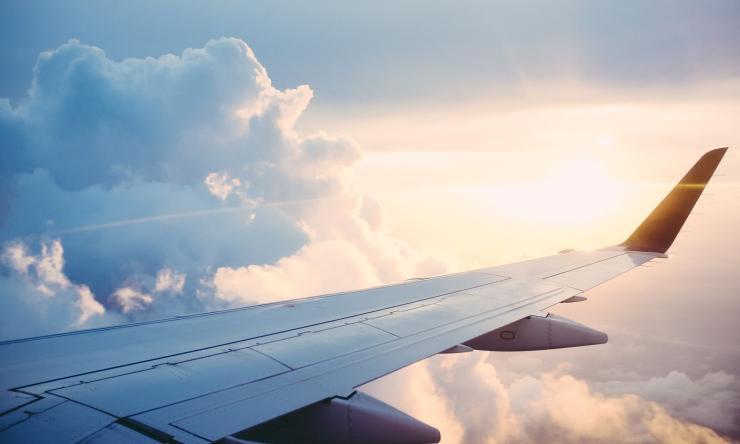Easing airplane anxiety
Many people endure phobias surrounding airplane travel. For some, the debilitating fear could put a damper on summer travel plans. A Baylor College of Medicine psychologist explains how to overcome phobias by facing fears.
“It’s very normal and in fact adaptive to have some fear. It keeps us from away from dangerous situations and doing risky things. What makes something a phobia is when the fear is excessive or exaggerated, causes significant distress and really gets in the way of life. That’s when it crosses a line into something more impairing,” said Dr. Eric Storch, professor and vice chair of psychology in the Menninger Department of Psychiatry and Behavioral Sciences at Baylor.
Phobias present differently among individuals and can be about a broad range of topics, but they typically have three core components:
- Cognitive response: Typically, thoughts about something bad happening.
- Physiological response: How your body feels, such as feeling jittery/panicky, sweating, shaking or butterflies in your stomach.
- Behavioral response: Often trying to stay away from things that make you afraid.
“Phobias are excessive in nature and can cause a lot of distress and impairment, especially when avoidance becomes significant. Unfortunately, there is a neurotic paradox that takes place where the person fails to learn that nothing bad will happen (or they can successfully manage it if it does) if they confront a fear because they are always staying away from it,” Storch said.
If one has a fear of flying but has never flown on an airplane, they never learn that flying is safe because they never had the experience. Storch recommends the approach of slowly, gradually confronting fears without avoiding or escaping from them in a way that is consistent with their goals. This allows them to learn if the feared outcome is valid (which is usually not the case) as well as their ability to cope with it. This approach is not only used in an effective type of therapy called cognitive behavioral therapy; loved ones can also encourage others to slowly confront these situations to accomplish things they want or need.
Storch suggests different steps to face airplane fears:
- Watch videos, shows or movies about people flying on airplanes.
- Go to the airport and sit outside the security area or watch airplanes take off/land.
- Play airplane simulation games.
Write or read stories about flying or the feared outcome. “Ultimately, the aim is to have the person fly a short flight to another city, then eventually take a longer flight cross country or abroad,” he said. “The whole goal is learning what happens by virtue of facing that fear.”
Think about the facts if you feel anxious ahead of a flight. Riding your bike to work or driving in major traffic is more dangerous than flying in an airplane, which is extremely safe. Understand that it is very rare to see crashes given the number of flights taking place every day. Rules and regulations are in place for safety.
While everyone’s needs are different, Storch does not encourage people to take anti-anxiety medications to face their phobia of air travel. This can perpetuate the problem.
“If someone takes anti-anxiety medicine, what ends up happening is that they never really learn what happens in-flight. It gets in the way of that process, which is important for people making progress,” Storch said.
Medication can be very helpful for some, so work closely with your doctor to help you manage that if necessary.
If you feel anxious in-air, do something enjoyable that keeps your mind off the fear, such as reading a book or watching a comfort movie. Avoid drinking alcohol to ensure a smooth experience.
“Support and encourage your loved ones afraid of flying. Slow and steady wins the race,” Storch said.
See more here about psychiatry healthcare services at Baylor Medicine.










